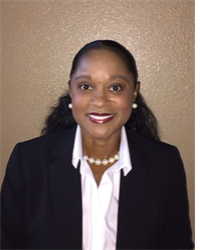Employers, Educators Collaborate to Graduate the Next Oil, Gas Workforce

When crude oil prices began their descent in summer of 2014, many felt the effects immediately – from the thousands of workers who were laid off to the oilfield and services companies struggling to stay solvent.
And suddenly, eager energy graduates were hit with a harsh reality: far fewer job prospects.
Students now have a heightened awareness of the competitiveness of gaining a job and have to be more creative in their approach, Fiona Kennedy, careers consultant at Robert Gordon University, told Rigzone.
Most believe a joint effort is needed between industry employers and educational institutions to tackle the workforce challenges in oil and gas. While the industry and academia have continued collaborating during the downturn, Rigzone checks in to see how effective these efforts have been.
Communication Leading Collaboration
A gap exists between what employers are looking for and what colleges and universities think is needed, Peter Searle, Airswift CEO, told Rigzone.

Searle addressed two different areas for the gaps: technical skills and social expectations.
“The communications gap between business and the way new graduates speak and communicate causes an expectation differential of what the standards should be for university graduates,” he said. “I often hear business people remark that graduates aren’t what they used to be. My response is, ‘Of course they are. What they aren’t is communicating the same way on the same social level as the people who are employing them are communicating’.”
What’s it going to take to get on the same page? One way is for colleges and universities to maintain solid relationships with alumni who work in the industry.
“Our alumni are very vocal and they recognize that the students take a really big hit from the downturn,” Elio Dean, teaching assistant professor at the Colorado School of Mines (CSM), told Rigzone.
He said CSM is constantly communicating with alumni as well as companies that employ its graduates.

“Larger independents and major oil companies are always vocal, but I find it interesting that we’re seeing more of the smaller companies step up to the plate during the downturn,” Dean said. “They may not be able to offer the same package as the larger companies or major independents, but we see a lot of the smaller companies come in to see where they can help out.”
At the University of Houston (UH), Yolanda Brooks Brown, program manager for internships and scholarships at the Cullen College of Engineering’s career center, told Rigzone the school makes sure to include industry employers on its boards and committees. This way, UH is aware of employers’ needs and can funnel the right students to them.
Collaboration can be as simple as resume reviews, in which Brown asks employers to look over students’ resumes and provide feedback on the ones they like best.
“We take that feedback to students and say, ‘this is what most of our employers are saying that they like to see on your resumes … the format … the type of content,’” Brown said.
Industry employers are also invited to speak to students about various topics, such as how to prepare themselves for (the job search) during the downturn and share what the most competitive students look like.
“This way, students have the opportunity to stay connected to employers and vice versa,” she said.
Remaining Relevant
There may be a silver lining in the downturn, Brown said, and that’s the opportunity for employers to focus less on recruiting and more on branding.

It helps students maintain interest in particular employers because the company reinforces its interest in students despite the downturn.
“Employers may want to look into using the money they’re not spending on recruiting to visit colleges and universities to brand themselves – whether it’s coffee or a lunch workshop,” Brown said. “It would definitely help with morale.”
To combat a challenging work environment, CSM has a distinct focus on remaining relevant by staying up-to-date with its curriculum.
“For example, data science and data analytics is big now,” said Dean. “The more we talk to employers of our students, the more we learn that dealing with big data sets has become one of the standards of the industry.”
So CSM modified one of its courses to include more data analytics and teamed up with industry providers of software for data analytics.
Last year, Dean conducted a survey asking students how the school can improve its curriculum. The overwhelming response was to build off of unconventionals, for which Dean says Denver is the hub. So the school updated its curriculum to include more focus on unconventionals.
And while students may not have the experience industry vets have, Dean said students’ adeptness with computers is a unique skill set CSM is trying to build upon – by introducing them to as much software as possible.
“Industry veterans may know how to use their cell phone and computer programs, but some of these students can learn this stuff in literally a week,” he said.
Changing Attitudes
Many students nearing graduation probably entered college when the industry was booming – or at the very least, faring far better than it is now. It’s now become a very real concern for educators who have to manage the inevitable shift in attitudes of its students.
“The largest majority of students I speak to are extremely nervous, especially those getting close to graduation or those who have recently graduated,” Brown said. “I am still seeing those recent graduates because a lot of their job offers got rescinded. Then there are the other graduates who have jobs, but are nervous about losing them … they see what’s going on and they’re very nervous, as well they should be.”
Some petroleum and subsea engineering students have visited Brown to inquire about changing majors, though Brown said the school doesn’t encourage students to do so.
Instead, Brown counsels students to expand their search to include broader opportunities.
“We have a lot of banking institutions contact us because they know that our petroleum, chemical and some subsea engineering students would be looking for opportunities,” Brown said. “A lot of the banks are highly immersed in what goes on in the oil and gas industry, so it’s helpful for them to hire students who are really knowledgeable about the industry.”
At CSM, Dean remains honest with students about the industry.
“We’re not sugarcoating anything. We’re very clear with students – oil prices are low and we don’t know what’s going to happen a year from now,” he said.
“An international event might send prices back up to $100 per barrel, or a new technological innovation might bring it down to $20 per barrel. We just want students to be well informed. That’s where we’ll really see who’s in this because they’re passionate about it.”
Dean noted that the students who are truly passionate about oil and gas are still upbeat despite the dismal job market.
“Some students entered for the high salary and that’s just not there right now. So they are discouraged,” he said. “Some students who were passionate and excited and have not been able to find a job are also becoming discouraged. The difference is the truly passionate ones will work like crazy to find something, even if it means working for far less or even for free.”
This is where smaller companies have been stepping in and offering part-time or contract work. Students may not get the big benefit packages, but they will gain the experience, which is invaluable.
New Initiatives
Colleges and universities remain steadfast in their efforts to prepare graduates for the industry.
Robert Gordon University arranges on campus presentations, career fairs and job placements and participates in industry events.
UH meets with employers that hire the largest number of its students at least twice per academic year. Capstone projects for graduating seniors are usually sponsored by oil and gas companies.
CSM is offering an externship this summer providing students with technical experience.
“The main driver for the externship, of which I’m working with 10 different companies, is we’re seeing that students who can’t get an internship are having extreme difficulty getting a job interview,” Dean said.
“No job interview, no job. So if the industry is struggling, we recognize that we have to take action.”
Linda Battalora, teaching professor in the petroleum engineering department for the CSM, expressed appreciation for the work the industry and professional societies have done to collaborate with the school.

“Companies are doing what they can to support students and working very closely with educators to provide students with the best opportunities they can,” she told Rigzone.
“Students may not get their first choice of job they want in the industry, but eventually, with experience and acquired skills, they may get that dream job in a particular sector. By companies contributing to these 'externships,' they’re doing what they can to support the students and professional organizations are doing all they can to provide opportunities for student involvement and networking. The students are very receptive to that.”
WHAT DO YOU THINK?
Generated by readers, the comments included herein do not reflect the views and opinions of Rigzone. All comments are subject to editorial review. Off-topic, inappropriate or insulting comments will be removed.
- What's Next for Oil? Analysts Weigh In After Iran's Attack
- Venezuela Authorities Arrest Two Senior Energy Officials
- CNOOC Bags Contract for 4.6 MMcf of LNG for Philippines
- EIA Raises WTI Oil Price Forecasts
- EU Gas Storage Nearly 60 Percent Full at End of Heating Season
- ExxonMobil Makes FID on 6th Project in Contested Guyana Asset
- Is The Iran Nuclear Deal Revival Project Dead?
- ORE Catapult Looks for New CEO as Jamieson Steps Down
- Japan's Mizuho Invests $3.64MM in Bison's CCS Project in Alberta
- Equinor Advances First Battery Storage Projects in USA
- Macquarie Strategists Warn of Large Oil Price Correction
- JPMorgan CEO Says LNG Projects Delayed Mainly for Political Reasons
- USA, Venezuela Secretly Meet in Mexico as Oil Sanctions Deadline Nears
- EIA Ups Brent Oil Price Forecast for 2024 and 2025
- Petrobras Discovers Oil in Potiguar Basin
- EIR Says Oil Demand Will Not Peak Before 2030
- Biden Plans Sweeping Effort to Block Arctic Oil Drilling
- Pantheon Upgrades Kodiak Estimates to 1.2 Billion Barrels
- Dryad Flags Red Sea 'Electronic Warfare' Alert
- Russian Oil Is Once Again Trading Far Above the G-7 Price Cap Everywhere
- Oil and Gas Executives Predict WTI Oil Price
- New China Climate Chief Says Fossil Fuels Must Keep a Role
- Chinese Mega Company Makes Another Major Oilfield Discovery
- Oil and Gas Execs Reveal Where They See Henry Hub Price Heading
- Equinor Makes Discovery in North Sea
- ExxonMobil Racks Up Discoveries in Guyana Block Eyed by Chevron
- Macquarie Strategists Warn of Large Oil Price Correction
- DOI Announces Proposal for Second GOM Offshore Wind Auction
- Standard Chartered Reiterates $94 Brent Call
- Chevron, Hess Confident Embattled Merger Will Close Mid-2024


